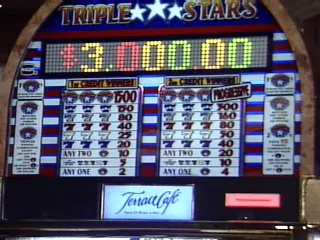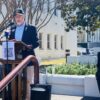By Bill Britt
Alabama Political Reporter
MONTGOMERY—There is great deal of speculation about how or even if a compact with the Poarch Creek Indians (PCI) can or should be reached.
Lately, a “third way” has been floated that would give the Tribe land in North Alabama, in an exchange for some type of revenue agreement with the state.
Most of the legislators we have spoken with (and they are only a sample) feel the State should enter into some arrangement with the Tribe for the benefit of both parties.
The Tribe, as reported by this publication, as well as others, has built a solid reputation of being good corporate citizens and good neighbors. Beyond generating economic development, they are generous with local municipalities and local charities. So, there is good reason for welcoming an arrangement between PCI and the State.
Competing ideas on what type of agreement should be reached has left many questions: should there be an exclusive compact as proposed by Speaker Mike Hubbard or should there be a universal gaming plan as advanced by Senate President Pro Tem Del Marsh?
Recently, a third way has emerged as a possible compromise.
This version has Gov. Robert Bentley granting the Tribe State land in North Alabama, on which to build a casino. The land grant is believed to be within the Governor’s authority. However, it has been suggested that this arrangement could be made without the State entering into a compact that would allow the PCI Class III gaming, and simply permit the Tribe to continue to offer Class II gaming.
Class III, Las Vegas-style gaming is illegal under Alabama State law. Marsh says, and legal scholars agree, that a constitutional amendment would be needed to allow Class III gaming.
Class II gaming, which includes bingo, is what is currently being played at tribal casinos. Even electronic bingo is illegal on tribal land, according to the State’s Attorney General Luther Strange.
And the State’s Supreme Court has ruled that bingo can only be played on paper, not electronically. This has been a continuous battle since former Gov. Bob Riley began his war on bingo years ago. Attorney General Strange has closed selective electric bingo facilities across the State, and has even sought a judgement in Federal court as to his authority to shutter electronic bingo on Tribal land.
Leaving aside this complicated issue, opening a Class II facility in North Alabama, in which the State received some type of monetary benefit, appears to be illegal, according to the very specific language of the Indian Gaming Regulatory Act, (IGRA).
IGRA states, “Any Class II gaming on Indian lands shall continue to be within the jurisdiction of the Indian tribes.”
Net revenue from these games is not to be used for purposes other than—”to fund tribal government operations or programs; to provide for the general welfare of the Indian tribe and its members; to promote tribal economic development; to donate to charitable organizations; or to help fund operations of local government agencies.”
This means that the Tribe has exclusive jurisdiction over Class II gaming and cannot give the State any power to regulate or share in the revenue, according to Federal regulations.
The IGRA language clearly states there are only 5 categories for which Class II revenues can be used—none of them include payments to a State.
The only time a State can have any regulatory power or share in gaming revenue with the Tribe is under a compact, which allows Class III gaming.
The very language in IGRA leaves the latest “third way,” legally unavailable.
The future of gaming is presently in great flux. Meanwhile, competing interests and false information seems to be quite abundant.






















































